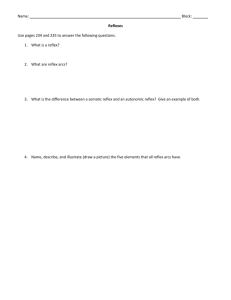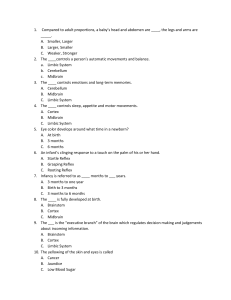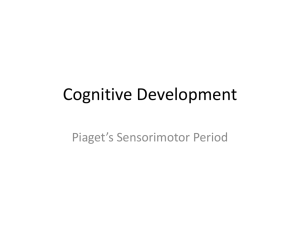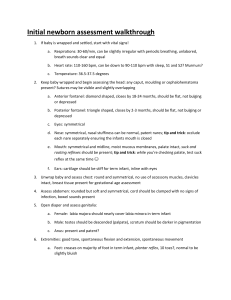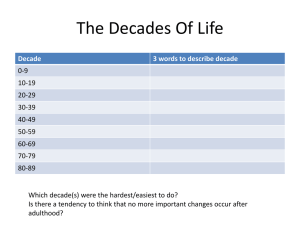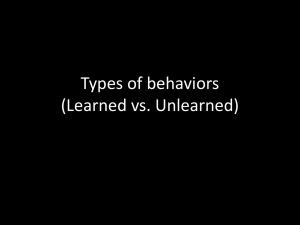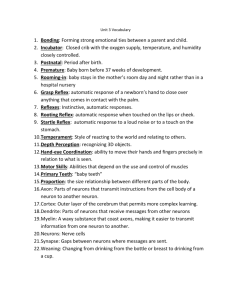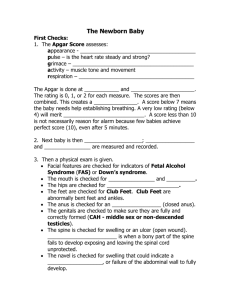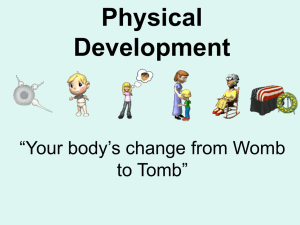Development Test - Reading Community Schools
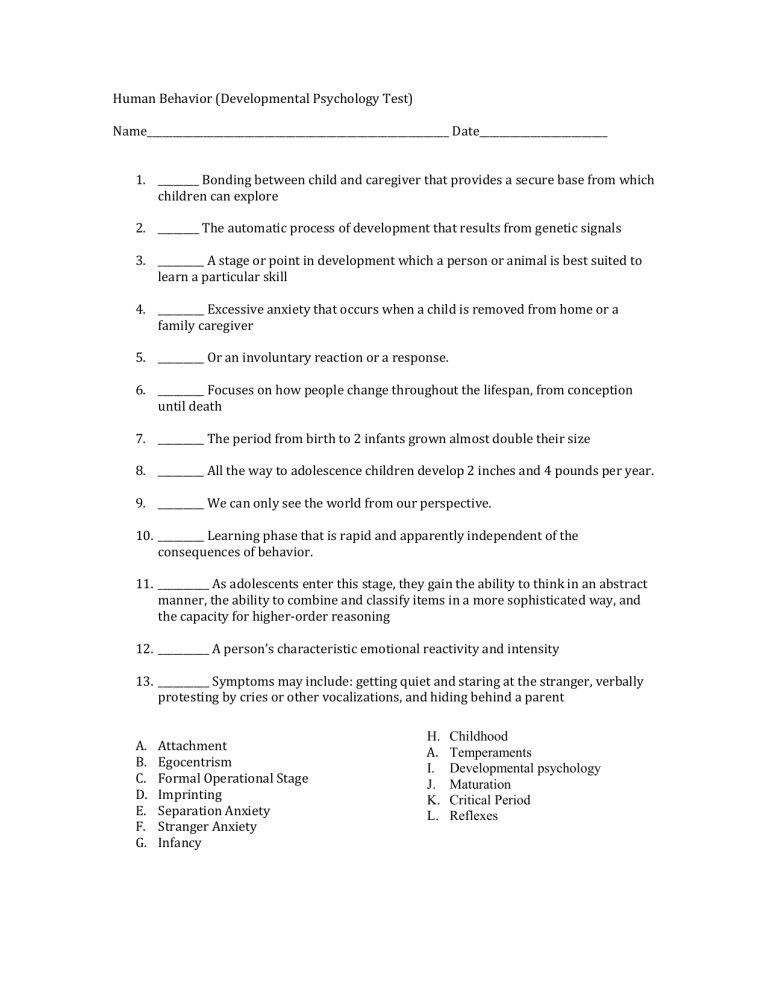
Human Behavior (Developmental Psychology Test)
Name___________________________________________________________ Date_________________________
1.
________ Bonding between child and caregiver that provides a secure base from which children can explore
2.
________ The automatic process of development that results from genetic signals
3.
_________ A stage or point in development which a person or animal is best suited to learn a particular skill
4.
_________ Excessive anxiety that occurs when a child is removed from home or a family caregiver
5.
_________ Or an involuntary reaction or a response.
6.
_________ Focuses on how people change throughout the lifespan, from conception until death
7.
_________ The period from birth to 2 infants grown almost double their size
8.
_________ All the way to adolescence children develop 2 inches and 4 pounds per year.
9.
_________ We can only see the world from our perspective.
10.
_________ Learning phase that is rapid and apparently independent of the consequences of behavior.
11.
__________ As adolescents enter this stage, they gain the ability to think in an abstract manner, the ability to combine and classify items in a more sophisticated way, and the capacity for higher-order reasoning
12.
__________ A person’s characteristic emotional reactivity and intensity
13.
__________ Symptoms may include: getting quiet and staring at the stranger, verbally protesting by cries or other vocalizations, and hiding behind a parent
A.
Attachment
B.
Egocentrism
C.
Formal Operational Stage
D.
Imprinting
E.
Separation Anxiety
F.
Stranger Anxiety
G.
Infancy
H.
A.
I.
J.
K.
L.
Childhood
Temperaments
Developmental psychology
Maturation
Critical Period
Reflexes
14.
Identify the following Temperaments (2 points)
____________________________________ Refers to the appearance of bold, sociable and outgoing behaviors.
____________________________________ Refers to a shy, timid, and fearful child.
15.
Identify the following Reflexes (3 points)
_________________________________ When a baby's cheek is stroked. The infant will turn toward the side that was stroked and begin to make sucking motions
_________________________________ Limb splaying when a loud noise occurs
_________________________________ Grasping objects that are placed in the hand
Grasping Reflex Moro Reflex Rooting Reflex Babinski Reflex
16.
What did Harry Harlow’s experiment with monkeys helped psychologists understand? (2 Points)
Baby monkeys preferred the _______________________ mother over the wire mother with the bottle.
________________________________________ Is a key to attachment, emotional communication, and a secure base.
17.
Aimsworth Experiment (3 Points)
The experiment was named the ________________________ situation in which baby’s behavior was observed when a mother leaves baby with an unknown adult.
The results of this experiment led to two classifications of children in this study.
______________________________ Explore while a parent is present, are distressed when they leave, and go to the parent upon return
______________________________ - May explore with or without the parent around, may show a lot of stress when their parents leave though they may or may not go to the parent upon return
Insecurely Attached Securely Attached Stranger Comfort
18.
Lawrence Kohlberg’s 3 Stages of Moral Reasoning (3 Points)
_________________________________________- Choices are also made based on social acceptance as adolescence begins
_________________________________________ - An internal struggle between your personalized morals, and those of society
_________________________________________ - Children often do what is in their own best interest
Post Conventional Morality Conventional Morality Pre-conventional Morality
Parenting Styles (1 Point Each) Identify which parenting style is being used with the correct number.
1. Authoritarian 2. Permissive 3. Authoritative
19.
__________ I believe that it is better not to have rules than to worry about breaking them.
20.
__________ Children should obey their parents and not talk back.
21.
__________ Children should be given choices.
22.
__________ Children can get along pretty well if you just leave them alone.
23.
__________ My work and home responsibilities are too stressful to worry about what the children are doing
24.
__________ Sometimes children have a point. I try to listen to them.
25.
__________. It’s not important for children to love their parents, but they must always obey them.
26.
___________. I give my children a roof over their head and food, I don’t interact much with my children, and they come and go as they please.
27.
___________ Although it takes hard work, parents should try to talk about family decisions and each person should share his/her feelings.
28.
___________ When children don’t behave, I yell at them and threaten them with many things.

